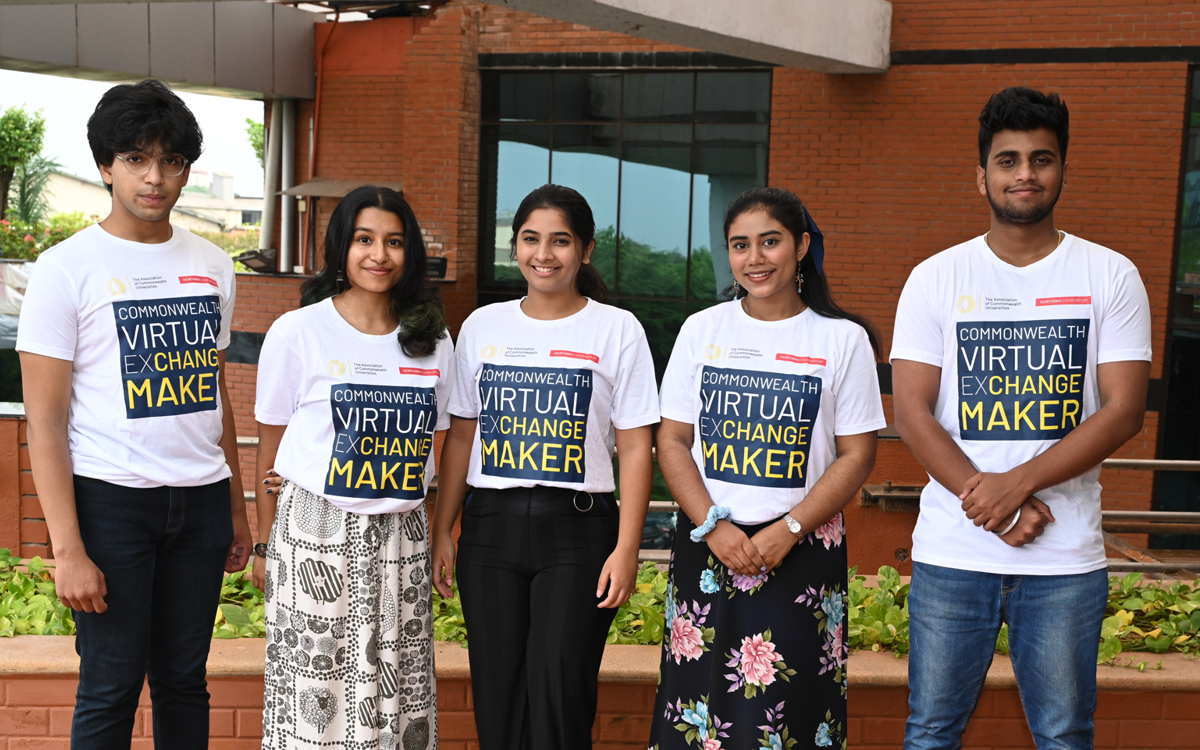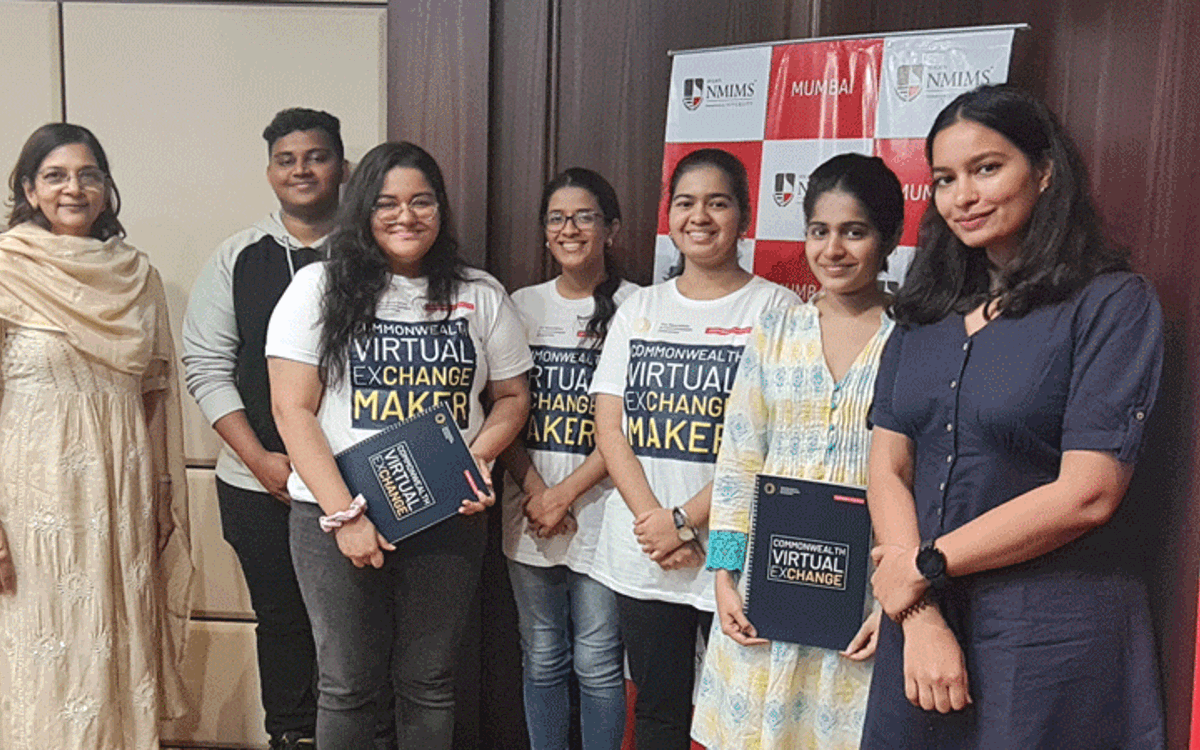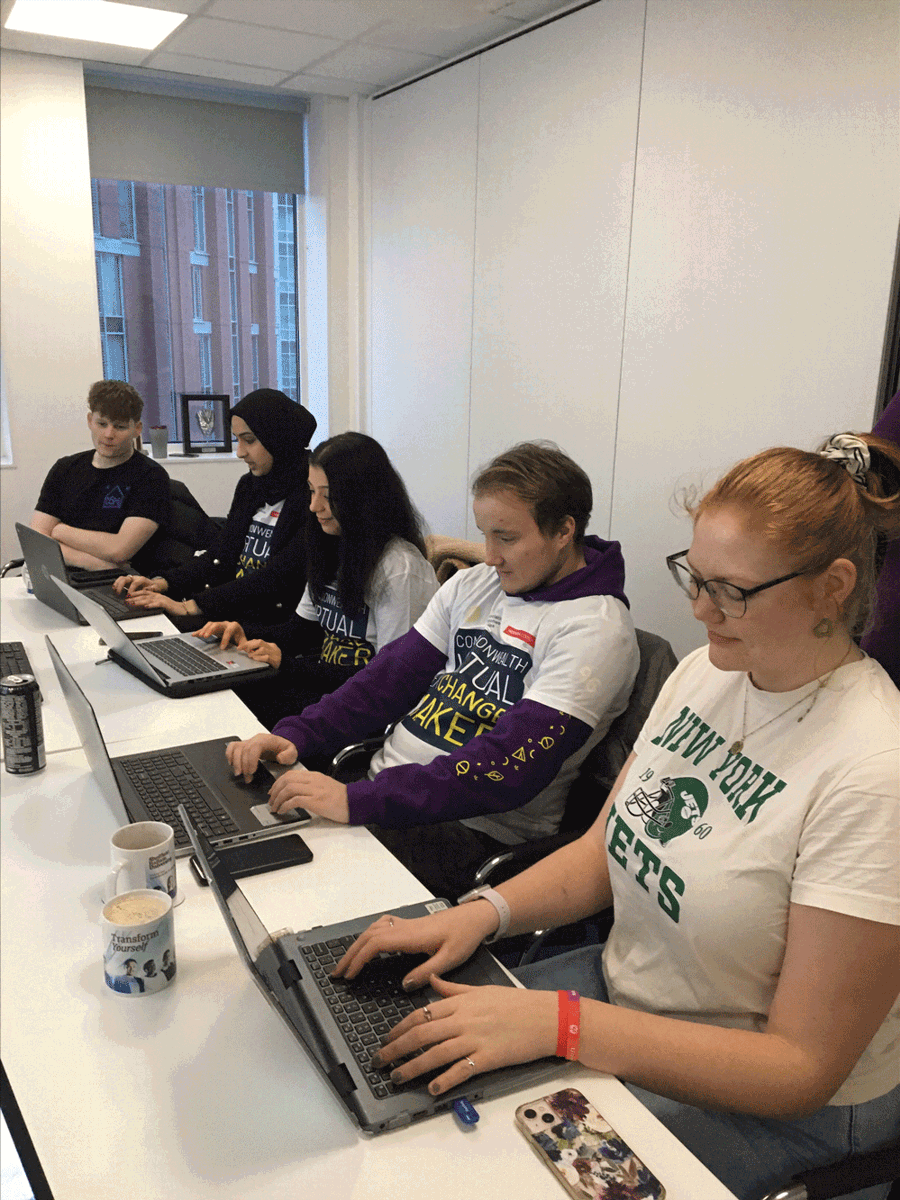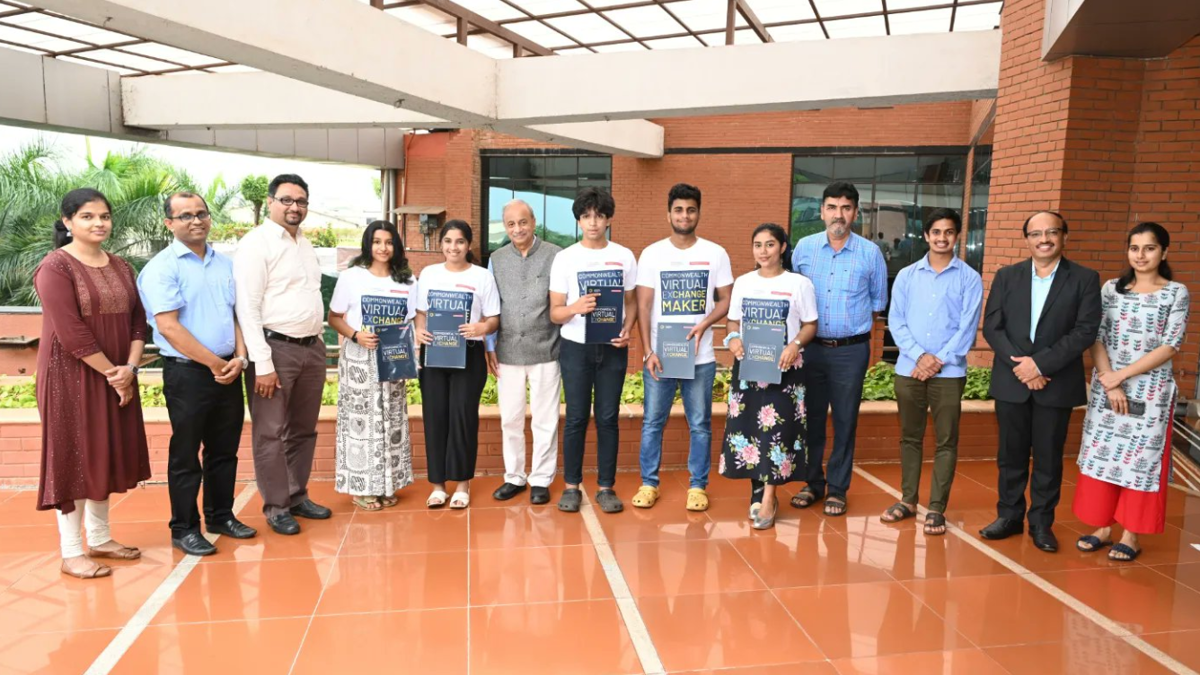
WISER - an app to help empower women with better financial awareness; Scan Sustainably – a QR code for consumer packaging linking to recycling information; and Dazzle, a new cosmetics brand built with ethical labour and cruelty-free testing. These were just three of the brilliant business ideas pitched by students at a mini-conference to mark the end of our inaugural Commonwealth Virtual Exchange (CVE), an eight-week virtual learning programme linked to the UN Sustainable Development Goals (SDGs).
At the start of the CVE, these 40 students from 10 ACU member universities might not have known much about the specifics of social entrepreneurship – such as business models, customer value propositions and investment pitches. But just eight weeks later, nine teams wowed the CVE judging panel with impressive presentations addressing the theme of ‘social entrepreneurship as a tool for attaining the SDGs’.
Over the past two months, students have worked remotely with their teams across multiple time-zones in Australia, Hong Kong, India, Malaysia and the UK. They have learnt to think like social entrepreneurs and dreamt up viable business ideas together. They have also been given a taste of what it’s like to work in teams from different countries and cultures, harnessing diverse perspectives in pursuit of a shared goal.

The pilot CVE programme was 12 months in the making and drew on the expertise of senior specialists from the 10 participating institutions, making it an excellent example of cross-Commonwealth collaboration on an innovative education project.
Students accessed study materials through a bespoke online learning platform in their own time. They joined each other synchronously for weekly meetings with their team and facilitator, and for weekly drop-in lectures.
International student mobility schemes have become more popular in recent years, but outward mobility is still limited for many. Through our global network, the ACU was able to reach a diverse set of students, many of whom would find it difficult to access overseas study, as well as convening a wealth of expertise to deliver the programme.
The programme is free for students to take part, and because it’s delivered online, it allows students who are under-represented in international mobility programmes to take part alongside their university studies.

At the mini-conference, Joanna Newman, Chief Executive and Secretary General of the ACU, said: “International collaboration in higher education leads to breakthroughs in knowledge, the free exchange of ideas, and enduring bonds between institutions and nations.
“Working remotely and across different time zones, while also continuing with your degree studies, is not an easy task - and it is admirable that the students have successfully done so. I hope that you have made connections and built friendships across borders which will grow over the years.”
One student from the University of Western Australia said: “I was able to take notice of my strengths and weaknesses when working in a cross-cultural setting. It made me more appreciative of my team-mates’ diverse areas of expertise.”

Another student added: “I have improved my communication skills during this programme. I have also gained a good understanding of how cultural differences can lead to problems in teams, along with the skills to overcome these.
“Even though we are divided by countries and distance, we have a lot of similarities. We were all united by the will to make a change, and that is what drove us to work.”
Meena Saxena, Director of International Linkages at participating university NMIMS said: “Collaborative problem-solving in a borderless virtual environment is more important than ever.
"The CVE introduces students to a global society and helps them develop skills to navigate an increasingly complex and ambiguous world. NMIMS is proud to be part of this admirable initiative.”
The ambitious challenges set within the UN’s Sustainable Development Goals won’t be solved by governments alone. Citizens will play a significant supporting role, by turning the problems into challenges and opportunities as social entrepreneurs. The Commonwealth Virtual Exchange provides a platform for students to begin to explore the skills and knowledge that they need to tackle our planet’s complex global challenges.
Winning teams:
- First place: Team Edinburgh: Scan Sustainably QR code
- Second place: Team Hong Kong: Smart Output responsible packaging
- Audience choice: Team Kuala Lumpur: Access Now.
Mini-conference judging panel:
- Dr Lavern Samuels, Director, International Education and Partnerships Directorate, Durban University of Technology in South Africa
- Diane Leicester, Executive Director, Northern Consortium, UK
- Albina Szeles, Associate Director, Global Mobility, PFL, Coventry University Group, UK
Thank you to the universities who took part in, and helped to shape, the programme:
University of Malaya, Malaysia, Manipal Academy of Higher Education, India, the University of East London, The University of Edinburgh, and The University of Western Australia, alongside support from five other ACU member universities: SVKM’s NMIMS, National Law University Delhi, O.P. Jindal Global University, Sheffield Hallam University and The Chinese University of Hong Kong.
The ACU, with additional sponsorship from Northern Consortium, funded students from participating member universities to take part.
